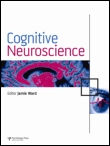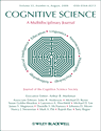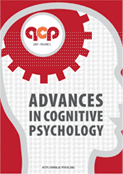
Brain Sciences
Scope & Guideline
Advancing Knowledge in Brain Function and Disorders
Introduction
Aims and Scopes
- Cognitive Development and Learning:
Research in this area explores the mechanisms of learning and memory, particularly in infants and children, examining how cognitive abilities evolve over time. - Meta-Learning and Cognitive Models:
The journal frequently publishes studies on meta-learning, which investigates the processes by which individuals learn about their own learning strategies, and how these can be modeled computationally. - Interdisciplinary Approaches to Cognition:
A consistent focus on integrating insights from various disciplines, including psychology, neuroscience, artificial intelligence, and philosophy, to develop a more holistic understanding of cognitive processes. - Social Cognition and Communication:
Papers often delve into the cognitive underpinnings of social interactions, including how language and communication affect cognitive development and social behaviors. - Proxy Failures and Behavioral Economics:
The journal addresses the concept of proxy failures in behavioral economics, focusing on how misalignments in goals and incentives can lead to suboptimal decision-making. - Cultural and Evolutionary Perspectives:
Research often incorporates cultural and evolutionary theories to explain cognitive phenomena, exploring how cultural practices influence cognitive development and social behaviors.
Trending and Emerging
- Meta-Learning and Cognition:
Recent publications emphasize the concept of meta-learning, exploring how individuals understand their learning processes and the implications for cognitive development and artificial intelligence. - Dynamic Systems and Computational Models:
There is a growing trend towards using dynamic systems theory and computational models to better understand cognitive processes, reflecting a shift from static to more fluid conceptualizations. - Neuroscience and AI Integration:
An increasing number of papers explore the intersection of neuroscience and artificial intelligence, examining how insights from cognitive neuroscience can inform AI development and vice versa. - Cultural Influences on Cognition:
Emerging research highlights the role of cultural factors in shaping cognitive processes, suggesting a shift towards understanding cognition in diverse sociocultural contexts. - Behavioral Economics and Decision-Making:
There is a notable rise in studies addressing behavioral economics, particularly concerning how cognitive biases and proxy failures affect decision-making in various domains. - Social and Ethical Implications of Cognitive Research:
Recent themes focus on the ethical implications of cognitive science research, particularly in areas like AI and neurotechnology, reflecting a broader societal concern with the applications of cognitive research.
Declining or Waning
- Classical Conditioning and Basic Learning Theories:
There has been a noticeable reduction in studies focused on classical conditioning and basic learning theories, possibly due to the rise of more complex models that incorporate cognitive and neural mechanisms. - Neuroanatomical Studies in Isolation:
Research that focuses solely on neuroanatomy without integrating behavioral or cognitive perspectives has decreased, indicating a shift towards more integrative approaches. - Traditional Psychophysics:
There is less emphasis on traditional psychophysical methods, as the field moves towards more computational and model-driven approaches that can better account for cognitive complexities. - Reductionist Approaches to Cognition:
The journal has seen a decline in purely reductionist studies that attempt to explain cognitive phenomena solely through biological or neural mechanisms, favoring more holistic frameworks. - Static Models of Human Behavior:
There is a waning interest in static models that do not account for the dynamic nature of human cognition and behavior, as researchers seek more adaptable and context-sensitive frameworks.
Similar Journals

Cognitive Neuroscience
Advancing Understanding of Mind and BrainCognitive Neuroscience is a pivotal journal in the ever-evolving field of cognitive neuroscience, published by Routledge Journals, Taylor & Francis Ltd, in the United Kingdom. Since its inception in 2010, this journal has dedicated itself to publishing innovative research that explores the intricate relationships between neural mechanisms and cognitive processes. With an increasing focus on interdisciplinary studies, it addresses critical issues from both theoretical and empirical perspectives. Although it currently holds a Q3 ranking in the Cognitive Neuroscience category, it has made significant strides in its Scopus ranking, now positioned at #62 out of 115, reflecting its growing impact on the academic community. Researchers and professionals will find the journal an invaluable resource for staying updated on the latest findings and methodologies in the field. While the journal operates under a traditional access model, it ensures high visibility and dissemination of crucial research that shapes our understanding of the brain's role in cognition. As it continues to evolve through to 2024, Cognitive Neuroscience remains committed to fostering collaboration and inspiring future innovations within the discipline.

BEHAVIORAL AND BRAIN SCIENCES
Advancing Insights in Neuroscience and PsychologyBehavioral and Brain Sciences, published by Cambridge University Press, is a pivotal journal focusing on the interdisciplinary fields of Behavioral Neuroscience, Neuropsychology, and Physiological Psychology. With a history dating back to 1978 and ongoing through 2024, this journal serves as a vital platform for researchers, professionals, and students seeking to advance their understanding of brain-behavior relationships. Despite its current Q3 classification in various categories as of 2023, Behavioral and Brain Sciences is recognized for its insightful articles that foster discussions among professionals in the field. While it operates on a subscription model, the journal ensures broad access through individual and institutional subscriptions. Researchers will find this journal not only valuable for publishing their work but also for accessing a diverse range of scholarly articles that address contemporary issues in neuroscience and psychology, thereby enhancing the academic discourse within these evolving fields.

COGNITIVE SCIENCE
Transforming Knowledge into UnderstandingCOGNITIVE SCIENCE, published by WILEY, is a leading academic journal that delves into the complexities of human cognition through an interdisciplinary lens. With an ISSN of 0364-0213 and an E-ISSN of 1551-6709, this journal has made significant strides in the field since its inception in 1977, ample coverage through to 2024, and a commendable Q1 and Q2 categorization in Experimental and Cognitive Psychology and Cognitive Neuroscience as of 2023. The journal is positioned at the intersection of various disciplines, ranking #65 out of 165 in Experimental and Cognitive Psychology and #58 out of 115 in Cognitive Neuroscience, highlighting its relevance and contribution to advancing knowledge in these areas. Although it does not offer open access, COGNITIVE SCIENCE remains an essential resource for researchers, professionals, and students seeking to explore groundbreaking research and theoretical insights within the vast domain of cognitive science.

MEMORY & COGNITION
Connecting Research to Real-World CognitionMEMORY & COGNITION is a premier journal published by SPRINGER, dedicated to advancing the understanding of cognitive processes related to memory. Established in 1973, this esteemed journal covers a wide range of topics within the fields of experimental and cognitive psychology, neuropsychology, and physiological psychology, cementing its status as a leading voice in the arts and humanities. With an impressive impact factor and a consistent Q1 ranking across multiple categories, MEMORY & COGNITION attracts high-quality research that elucidates the intricacies of memory function and cognition. The journal is nestled within the competitive landscape of academic publishing in the United States and maintains robust accessibility options, inviting both quantitative and qualitative analyses from researchers, professionals, and students alike. By fostering interdisciplinary dialogue and collaboration, this journal plays a pivotal role in shaping the future of cognitive research, making it an invaluable resource for its readership.

Journal of Cultural Cognitive Science
Fostering Dialogue Between Culture and Cognitive ScienceThe Journal of Cultural Cognitive Science, published by SpringerNature, is an esteemed forum for researchers and scholars dedicated to exploring the intersection of culture, cognition, and language. With its ISSN 2520-100X and E-ISSN 2520-1018, this journal has made significant strides since its inception in 2017, covering a wide array of topics pertinent to Experimental and Cognitive Psychology and Linguistics and Language. Notably, it has achieved remarkable recognition, ranking in the Q3 category for Experimental and Cognitive Psychology and Q1 for Linguistics and Language in 2023. Its Scopus ranks further illustrate its impact, with the journal positioned at the 89th percentile in Social Sciences - Linguistics and Language and 47th percentile in Psychology. Despite its ongoing journey, it continues to foster open dialogue and innovation among professionals, researchers, and students, providing valuable insights and advancing knowledge in the field.

ANIMAL COGNITION
Transforming Perspectives on Animal Minds through Rigorous ScienceANIMAL COGNITION is a prestigious academic journal dedicated to the exploration of cognitive processes in non-human animals, bridging the fields of ecology, evolution, behavior, and cognitive psychology. Published by Springer Heidelberg in Germany, this journal has established itself as a leading platform for innovative research since its inception in 1998, showcasing important findings that enhance our understanding of animal minds. With an impressive impact factor reflected in its Q2 rankings within both the Ecology, Evolution, Behavior, and Systematics and Experimental and Cognitive Psychology categories, ANIMAL COGNITION serves as an invaluable resource for researchers, professionals, and students alike. Although it currently does not offer open access, the journal's rigorous peer-review process ensures the highest quality of published research, making it a vital component of scholarly discourse in the study of animal cognition. As the journal continues to evolve into 2024 and beyond, it remains committed to advancing our knowledge while inspiring future generations of researchers in this fascinating field.

BRAIN AND COGNITION
Advancing Insights in Cognitive NeuroscienceBRAIN AND COGNITION, published by Academic Press Inc Elsevier Science, stands as a vital resource for researchers and practitioners in the realms of cognitive neuroscience and psychology. Established in 1982, the journal has continuously evolved, showcasing cutting-edge research that bridges the understanding of brain functions and cognitive processes up to 2024. With an impressive impact factor reflecting its commitment to high-quality scholarship, the journal currently holds a prestigious Q1 ranking in Arts and Humanities (miscellaneous) and notable Q2 rankings in various psychology fields, including Cognitive Neuroscience, Developmental and Educational Psychology, Experimental and Cognitive Psychology, and Neuropsychology. This multidisciplinary journal cultivates a rich academic dialogue, offering valuable insights to professionals, researchers, and students alike. Although it does not offer open access, its robust indexing in Scopus and consistent contribution to important discussions in cognitive research define its critical role in advancing knowledge and innovation in the cognitive sciences.

Frontiers in Human Neuroscience
Unlocking the Mysteries of Human CognitionFrontiers in Human Neuroscience is a premier open access journal published by FRONTIERS MEDIA SA, dedicated to advancing the understanding of the complexities of human neuroscience. With an ISSN of 1662-5161, the journal has established its prominence in various fields, achieving a Q2 ranking in categories such as Behavioral Neuroscience, Neuropsychology and Physiological Psychology, and Psychiatry and Mental Health as of 2023. Since its inception in 2008, Frontiers in Human Neuroscience has consistently contributed to the scholarly dialogue by offering a platform for innovative research that bridges the gap between neuroscience and behavioral science. The journal's rigorous peer-review process and commitment to open access ensures that findings are readily available, promoting collaboration and progress within the academic community. With an impact on neuroscience disciplines, it stands at the forefront of the field, inviting researchers, professionals, and students alike to engage with cutting-edge studies and developments. The journal's address is located in Lausanne, Switzerland, where it continues to flourish as a hub for neurobiological exploration.

PSYCHONOMIC BULLETIN & REVIEW
Advancing Psychological Insight, One Review at a Time.PSYCHONOMIC BULLETIN & REVIEW is a premier journal published by SPRINGER, dedicated to advancing the fields of psychology, particularly within the domains of Arts and Humanities, Developmental and Educational Psychology, and Experimental and Cognitive Psychology. With its ISSN 1069-9384 and E-ISSN 1531-5320, the journal serves as a vital resource for researchers, professionals, and students striving to stay at the forefront of psychological science. The journal boasts an impressive impact factor and ranks in the top quartile (Q1) in relevant categories, reflecting its prestigious standing in the academic community. Covering research from 1994 to 2024, it offers rich interdisciplinary insights into psychological processes and theoretical developments, supporting researchers in disseminating their findings effectively. While not an open-access journal, it provides various access options to ensure that vital research remains within reach of its audience. With a commitment to fostering scholarly dialogue and innovation, PSYCHONOMIC BULLETIN & REVIEW plays an indispensable role in shaping contemporary psychological discourse.

Advances in Cognitive Psychology
Illuminating the Pathways of the MindAdvances in Cognitive Psychology is a premier peer-reviewed journal published by UNIV ECONOMICS & HUMAN SCIENCES WARSAW, dedicated to the exploration of psychological processes underlying cognition. With its open access model implemented since 2005, the journal facilitates wide-ranging dissemination of cutting-edge research across various branches of psychology, including applied, clinical, experimental, and cognitive psychology. Despite its modest standing in terms of impact factor, reflected in its Q3 and Q4 rankings across numerous subfields, it remains an important platform for emerging researchers and seasoned professionals alike, aiming to foster insight into complex mental processes and enhance understanding of behavioral patterns. The journal's commitment to accessibility empowers a diverse community of readers, including students, to engage with innovative studies and reviews, contributing to the collective knowledge within the psychological sciences. Located in Poland, Advances in Cognitive Psychology is open for submissions from worldwide researchers, encouraging a global perspective on cognition and behavior.